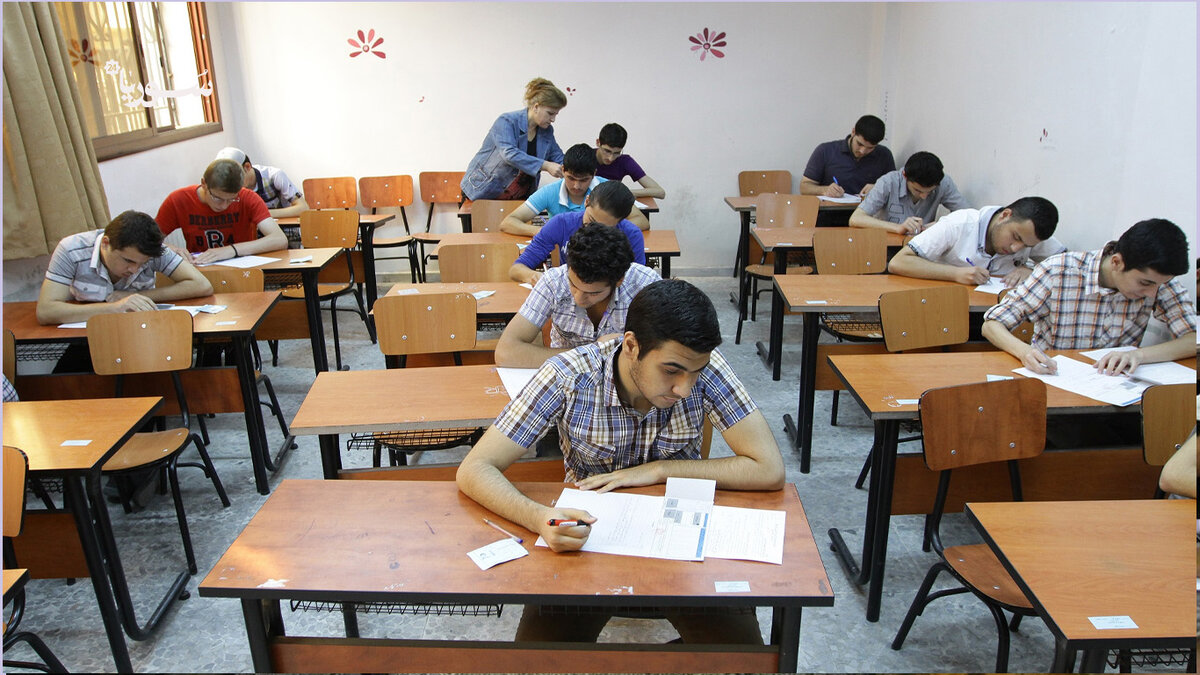أعلن مدير الامتحانات في وزارة التربية، محمود حبوب، أن الوزارة اعتمدت هذا العام إجراءات حديثة في تسجيل الطلاب لامتحانات الشهادات الثانوية والتعليم الأساسي والفروع المهنية، وذلك عبر تطبيقين إلكترونيين: "مدير" للطلاب النظاميين و"مدير أحرار" للمتقدمين بصفة دراسة حرة.
وقد استمر التسجيل من بداية شهر شباط وحتى الثامن من أيار الجاري، وبلغ عدد المسجلين حتى الآن أكثر من 730 ألف طالب وطالبة على مستوى البلاد. وأضاف حبوب أن الوزارة وضعت على رأس أولوياتها تجهيز المراكز الامتحانية بشكل متقن، من خلال تأمين أدوات الطباعة، واستخدام أنظمة إلكترونية حديثة لإدخال البيانات.
كما تم تنظيم عملية استقبال الطلاب وتوزيعهم بكفاءة، إلى جانب طباعة البطاقات الامتحانية التي تتضمن البيانات الأساسية مثل: اسم الطالب، مركز الامتحان، القاعة، ورقم الجلوس، وذلك لتسهيل وصول الطالب إلى مكانه المحدد وتقليل الإرباك يوم الامتحان.
وبيّن أن الطلاب المتقدمين بصفة دراسة حرة يُعاملون بالمساواة مع الطلاب النظاميين، حيث سيتم توزيعهم ضمن المراكز والقاعات نفسها. وأوضح أن هذه الخطوة تسهم في تعزيز الانضباط وتخفيف نسب الغش، التي شهدت انخفاضًا بنسبة تجاوزت 45% في المناطق المحررة خلال السنوات الماضية، بعد تطبيق هذا النظام.
وتابع حبوب حديثه حول الامتحانات المؤتمتة، مشيرًا إلى أن التجربة الأولية التي نُفذت خلال الفصل الدراسي الأول، سجّلت نسبة أخطاء بلغت 19.2%. وعزا ذلك إلى ضعف التدريب على نماذج الأسئلة وطريقة تظليل الإجابات، لذلك قررت الوزارة إرفاق ورقة إجابة منفصلة مع ورقة الأسئلة، بما يسمح للطلاب بنقل إجاباتهم بدقة أكبر.
كما أوضح أن اختيار المراكز الامتحانية تم بناءً على مدى جاهزية البنى التحتية والتوزيع الجغرافي المناسب، مع استثناء المناطق النائية من إقامة مراكز مستقلة بها، واعتماد المنشآت التعليمية الكبيرة كمراكز موحدة. وأشار إلى أن هذا الإجراء يهدف لضمان سرعة استلام الأسئلة وتأمينها بشكل كامل.
وفيما يخص البطاقة الامتحانية، أكد حبوب أنها ستتضمن جميع المعلومات الأساسية، ومنها اسم الطالب، رقم الاكتتاب، اسم المركز، القاعة، ورقم الجلوس، ما يسهّل على الطالب التوجه مباشرة إلى مكان جلوسه، ويقلل من التوتر في يوم الامتحان.
وفي ختام تصريحه، كشف حبوب عن إحصائيات التقدّم للامتحانات في محافظة دمشق، حيث بلغ عدد المتقدمين لشهادة التعليم الأساسي 27,658 تلميذاً وتلميذة، بينما بلغ عدد المتقدمين لشهادة الإعدادية الشرعية 3,678 تلميذاً وتلميذة. أما في مرحلة التعليم الثانوي، فقد توزّع عدد الطلاب على النحو التالي: 12,111 في الفرع الأدبي، و23,498 في الفرع العلمي، و407 في التعليم الشرعي، و1,357 في التعليم التجاري، و1,777 في التعليم الصناعي. وأضاف أن عدد الطالبات المتقدمات للامتحان النسوي بلغ 420 طالبة، موزعين على 337 مركزاً امتحانياً في دمشق وحدها.












